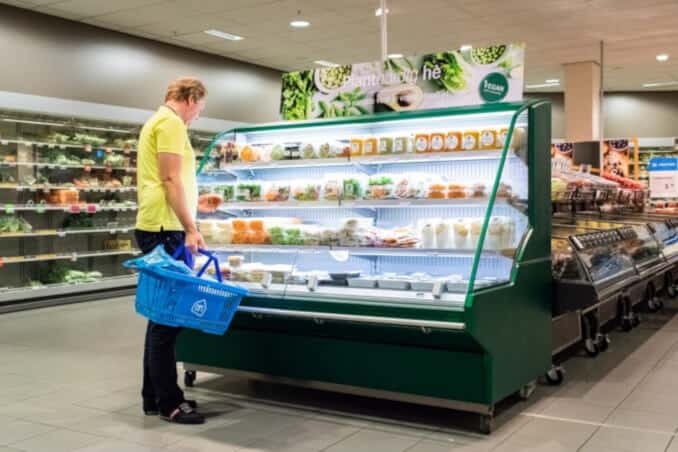New research from Statistics Netherlands — conducted in partnership with the National Institute for Public Health and the Environment (RIVM) and the Netherlands Nutrition Centre — has found that most Dutch people (69.2%) eat at least one meatless dinner per week.
Vegetarian dinners are eaten by many people (42.6%) once or twice a week, with a smaller group (21.7%) choosing them three or more times a week and 5% eating them every day. 0.5% of people eat dinners with no animal products at all. In total, about a quarter of dinners consumed in the Netherlands (1.8 out of 7 weekly meals) are meat-free.
Those with higher levels of education tend to eat meatless meals more often. 45% of those with a university education eat at least three vegetarian dinners per week, compared to 32% of people who have completed higher vocational education and just 19% of those who have only completed secondary education. Climate change is the most commonly cited reason for reducing meat consumption, followed by health and animal welfare.
There are also differences regarding age and gender; for example, those between the ages of 25 and 35 are the most likely to eat meatless meals, with 32% doing so at least three times a week. Additionally, 31% of women are vegetarian, pescetarian, or flexitarian, compared to just 23% of men.

Meat sales decline
Last year, research reported that meat sales in the Netherlands had declined for nine consecutive quarters, with a 13% drop compared to 2019. Many consumers said they had changed their eating habits to cope with rising food prices, and this included eating less meat. This is echoed by the new research, which has found that the percentage of people cutting down on meat to save money increased from 3.1% in 2020 to 9.4% in 2023.
Other research has found that some plant-based products are now cheaper than their animal-based counterparts at as many as six out of seven major Dutch retailers. In some cases, consumers could save up to 20% by choosing plant-based options.
“Meat has always been a product that requires an enormous amount of raw materials. To make one kilogram of meat, you need up to ten kilograms of grain. Now, in times of scarcity, that takes its toll,” said Pablo Moleman of ProVeg Netherlands. “Due to the large use of raw materials, meat is much more sensitive to disruptions in the world market than meat alternatives. Plant-based meat clearly wins out on efficiency, and we now see that reflected in the price.”





